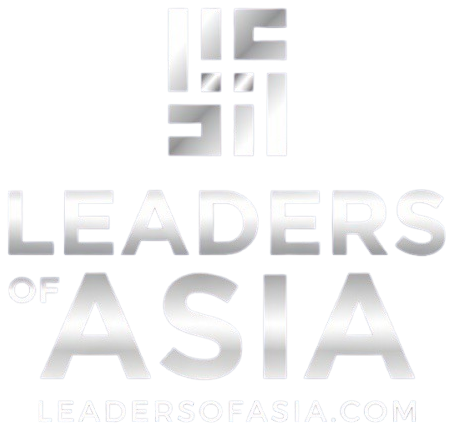Early Life and Entrepreneurial Foundations
Sadruddin Hashwani was born on February 19, 1940, in Karachi, which was then part of British India. He hails from a Khoja Isma’ili family with deep roots in Persian heritage, tracing their lineage back to Lasbela in Balochistan, where they settled with the third Ismaili Imam, Agha Khan. This rich cultural and religious heritage, coupled with a strong sense of community service, profoundly shaped Hashwani’s values and vision.
Growing up in Karachi, Hashwani was exposed to the dynamic world of commerce from a young age. His family instilled in him a sense of responsibility toward both his community and the larger society. Hashwani attended the University of Karachi, where he laid the academic foundation for his entrepreneurial pursuits. It was during these formative years that he began to build a strong understanding of business principles, setting the stage for his later ventures.
Venturing into Cotton Trading
In 1960, Hashwani co-founded the Hassan Ali Company alongside his brother, marking his entry into the business world. Their business focused on cotton trading, a sector of immense importance to Pakistan’s early post-independence economy. Under their leadership, Hassan Ali Company swiftly rose to prominence and was soon regarded as Pakistan’s leading cotton trading firm.
By the early 1970s, the company earned the distinction of being the “Cotton Kings of Pakistan,” a title reflecting its market dominance and exceptional trade practices. However, while the company prospered, the political climate in Pakistan was rapidly changing. Hashwani’s early successes in the cotton industry laid the foundation for his future ventures, but the nationalization policies of the 1970s would soon force him to reorient his focus.
Navigating Nationalization and Diversification
The 1970s brought significant challenges for private businesses in Pakistan, particularly due to the nationalization policies enacted by the government. In 1973, the Hassan Ali Company was nationalized, causing a major disruption to Hashwani’s burgeoning business empire. Instead of retreating, Hashwani used this setback as an opportunity to diversify his business interests, which would ultimately lead him into the hospitality industry.
While many entrepreneurs at the time were limited by the nationalization measures, Hashwani’s resilience and forward-thinking approach enabled him to pivot successfully. He recognized the immense potential in Pakistan’s growing hospitality sector and decided to venture into this domain. This marked the beginning of his transformation from a cotton trader to a key figure in Pakistan’s tourism and hospitality industries.
Foray into Hospitality
In 1978, Hashwani opened the Holiday Inn in Karachi, followed by another one in Islamabad in 1981. These hotels were groundbreaking for Pakistan’s hospitality landscape, as they brought international standards of service and luxury to the country. The Holiday Inn properties quickly became synonymous with quality service, and under Hashwani’s leadership, they set new benchmarks for what modern hospitality in Pakistan could look like.
In the early 1990s, Hashwani took the bold step of rebranding the two Holiday Inn properties as Marriott Hotels. This move positioned the Hashoo Group as a key player in the global hospitality network. With these strategic partnerships, Hashwani became one of the first entrepreneurs to secure a Marriott franchise outside of direct corporate management, marking a significant milestone for Pakistan’s hotel industry.
Establishing the Pearl-Continental Brand
In 1985, Hashwani made a landmark acquisition of a majority stake in Pakistan Services Limited, the company that owned several Inter-Continental Hotels in Pakistan. This acquisition was a defining moment in his career, as it laid the groundwork for the creation of Pakistan’s first indigenous luxury hotel chain, Pearl-Continental Hotels.
Hashwani’s vision was clear: to create a homegrown, world-class brand that would rival international hotel chains. Under his leadership, the Inter-Continental properties were rebranded as Pearl-Continental Hotels, ushering in a new era for Pakistan’s hospitality sector. The move solidified Hashoo Group’s dominance in the industry and gave rise to an iconic brand that continues to stand as a symbol of excellence in luxury accommodation.
Expansion and Innovation
With the success of the Pearl-Continental brand, Hashwani continued to expand his hotel chain’s presence across Pakistan, including cities like Lahore, Rawalpindi, and Karachi. The Pearl-Continental brand became synonymous with world-class service and luxury, attracting both domestic and international tourists. Hashwani’s ability to maintain consistency in quality, while expanding rapidly, set the group apart from other players in the hospitality sector.
Recognizing the diverse needs of Pakistan’s burgeoning middle class, Hashwani launched Hotel One, a more affordable yet high-quality brand aimed at providing modern accommodations without compromising on service standards. This move allowed the Hashoo Group to cater to a broader customer base and established the group as a leader in the diverse segments of the hospitality market.
Diversification into Multiple Sectors
Hashwani’s business acumen is best reflected in his ability to diversify the Hashoo Group’s portfolio. Beyond hospitality, he ventured into several other sectors, positioning his conglomerate as one of Pakistan’s most diversified business entities.
One of his major diversification initiatives occurred in 1995 when Hashoo Group acquired Occidental Petroleum’s operations in Pakistan, marking the group’s foray into the energy sector. This acquisition was a strategic move, aimed at strengthening Pakistan’s energy independence. The company’s energy portfolio grew even further when Hashoo Group acquired BHP Billiton’s Pakistani oil and gas operations in 2016, further solidifying its presence in the energy sector.
Hashwani also recognized the growing importance of technology and made inroads into the information technology sector with the establishment of Net-21 (Pvt) Limited. The group’s expansion into IT was followed by investments in real estate development, pharmaceuticals (Gelcaps), and ceramics (Pearl Ceramics), further demonstrating Hashwani’s foresight in capitalizing on emerging sectors.
Philanthropy and Social Responsibility
A hallmark of Sadruddin Hashwani’s legacy is his commitment to corporate social responsibility. In 2003, Hashwani established the Hashoo Foundation, which focuses on education, healthcare, and economic empowerment for underserved communities across Pakistan. The foundation’s efforts have resulted in numerous successful initiatives that have helped uplift marginalized populations in rural and urban areas alike.
The Hashoo Foundation’s programs have ranged from providing vocational training to women, establishing schools and healthcare facilities, and fostering community entrepreneurship. These programs reflect Hashwani’s deep belief that business success should be intertwined with efforts to improve the well-being of society as a whole.
Through the Hashoo Foundation, Hashwani has made a lasting impact on Pakistan’s social landscape, underscoring the importance of corporate responsibility and its role in sustainable development.
Recognition and Legacy
In recognition of his tremendous contributions to Pakistan’s economy and his philanthropic efforts, Sadruddin Hashwani was awarded the Nishan-e-Imtiaz in 2019. This prestigious honor, Pakistan’s highest civilian award, was a testament to his exceptional service to the country. Hashwani became the first businessman in Pakistan’s history to receive the Nishan-e-Imtiaz, solidifying his reputation as one of Pakistan’s most influential entrepreneurs.
Hashwani’s life and career were further chronicled in his autobiography, “Truth Always Prevails”, published in 2014. In this memoir, Hashwani offers readers an insightful look into his journey, challenges, and triumphs, providing inspiration to aspiring entrepreneurs. The book also reflects his unshakable commitment to principles of integrity and transparency—values that have guided him throughout his career.
A Portrait of Vision, Versatility, and National Service
Sadruddin Hashwani’s journey from a cotton trader to the head of Pakistan’s most significant hospitality empire exemplifies the power of reinvention and adaptability. His decision to diversify from trading into hospitality, followed by his ventures into energy, IT, pharmaceuticals, and real estate, demonstrates his far-reaching vision.
Through his work, Hashwani has transformed Pakistan’s hospitality landscape, providing world-class hotels and tourism infrastructure that have brought international recognition to the country. The Pearl-Continental brand, in particular, has become a symbol of excellence, redefining the standards of luxury and service in Pakistan.
Beyond business, Hashwani’s commitment to philanthropy through the Hashoo Foundation has touched the lives of thousands, contributing to the nation’s social development. His unwavering belief that business success must benefit society has set a high standard for other entrepreneurs to follow.
Conclusion: A Legacy of Vision and Resilience
Sadruddin Hashwani’s legacy is defined by vision, resilience, and a deep commitment to national development. His story is one of transformative leadership—navigating political upheaval, diversifying into multiple industries, and fostering a culture of corporate responsibility. His contributions to Pakistan’s economy, hospitality industry, and social welfare are monumental, leaving an indelible mark on the country’s landscape.
As Hashwani’s story continues to inspire generations of entrepreneurs and business leaders, his legacy stands as a beacon of vision, versatility, and service to the nation.






